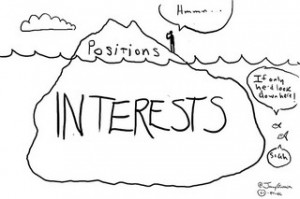 I was told by a manager one time, “If you aren’t failing, you aren’t trying.” And I am sure that there are many situations in which that statement is true. But, I am not dealing with effort and intentions alone today. Instead, I am dealing with results. To some this may seem harsh. Our society often expresses success in terms of trying really, really, really hard. But for today, let’s look at failure from a results-oriented perspective.
I was told by a manager one time, “If you aren’t failing, you aren’t trying.” And I am sure that there are many situations in which that statement is true. But, I am not dealing with effort and intentions alone today. Instead, I am dealing with results. To some this may seem harsh. Our society often expresses success in terms of trying really, really, really hard. But for today, let’s look at failure from a results-oriented perspective.
There are certainly tell-tale signs when a leader is failing. And that is true even when the leader himself does not see it. Certainly those around him don’t always it either. And if those that do, don’t always know hot to address it. But many times, those with discernment will see it.
Consider some of these signs of leadership failure within an organization:
- A leader is failing when there is a refusal to accept advice or help from other leaders within the organization who are more experienced. Sometimes we think that we must do it all ourselves and we must “gut it out.” Although advice is easy to find. Good and sound advice is a precious commodity. As a leader you must seek it out and give it very careful consideration.
- Al leader is failing when they lack the support of those around them. Failure is near when you have lost the support of those closest to you and who have real insight into the situation.
- A leader is failing when new people searching for a an organization with goood leadership continue to pass you by. Among many things, leadership is defined by followship. And when there are folks in need of leadership and yet they choose a different organization, this is a sign of leadership failure and that failure is obvious to those outside of the organization.
- A leader is failing when they bring embarassment or shame to the organization. It seems that the concept of shame is a distant and bygone concept. But everyone still understands embarassment on a personal level. So, if your organization is the brunt of jokes or is ridiculed publicly, there is leadership failure.
- A leader is failing when there are financial problems. This one is a little tricky if your organization is a church or non-profit and it depends upon charity or offerings for funding. Fundraising is an unavoidable function of leadership in this setting. And financial problems are most often indicative of the lack of “buy in” by those in the organization. As leaders we must be able to communicate and get buy in.
- A leader is failing when you continually miss opportunitues. There is a big difference between “seeing” and opportunity and “seizing” it. And these lost opportunities are hard to quantify. But here is where great leaders surround themselves with great teams where there is likely to be someone with the ability to spot opportunities and initiate a strategy to take advantage of that opportunity.
- A leader is failing when there is desperation. Great leaders do not let the situation degenerate to the point that deperation kicks in.
Click here to read the rest of the article »


















